News
Mintel reports on Asia coffee market
4 Jun 2018Asia has increasingly been looked upon as a promising region for the global coffee market over the past few years. In fact, the latest research from Mintel shows that Japan and Indonesia are among the world’s largest coffee retail markets by volume.

Asia has increasingly been looked upon as a promising region for the global coffee market over the past few years. In fact, the latest research from Mintel shows that Japan and Indonesia are among the world’s largest coffee retail markets by volume. Japan (304,000 tonnes) and Indonesia (268,000 tonnes) are ranked within the top five global coffee retail markets, with the US leading the way as the largest (607,000 tonnes), followed by Brazil (425,000 tonnes), and Germany (424,000 tonnes).
What’s more, Asia’s emerging markets will play a big role in the future of the global coffee sector as Mintel research reveals that Indonesia, Vietnam, and the Philippines are estimated to be among the top five fastest growing coffee retail markets by volume between 2017-2021. Indonesia is expected to grow at a compound annual growth rate (CAGR) of 11.4%, Vietnam at a rate of 9.2% and Philippines by 6.7%. The remaining two fastest growing markets include Turkey (6.8%) and Mexico (6.1%).Jonny Forsyth, Associate Director, Mintel Food & Drink, said:“Asia has great growth potential when it comes to coffee, with consumption continuing to rise across the region. Coffee culture has surged in Asia with more and more specialty coffee houses setting up shop in countries like Japan, Singapore, and Indonesia. Big brand coffee chains are also increasing their expansion efforts in the region. Additionally, Asia’s emerging markets have led global coffee growth in years past and will continue, with Indonesia leading this charge.”When it comes to coffee formats, it seems single-serve coffee (eg pod, bags, pre-filled filters) remains lucrative in more developed markets like the US, but growth has slowed. On the flip side, growth of single-serve coffee is strong in emerging markets, especially in Asia.Indeed, Asia, Latin America and Middle-East/Africa accounted for almost a quarter (23%) of total global single-serve launches, up from a 14% share in 2014, according to Mintel Global New Products Database (GNPD). In South Korea, 30% of all coffee launches in 2017 were pods, up from 20% in 2016. Meanwhile, in 2017, one in five (20%) urban Chinese coffee drinkers say they drink drip bag** coffee once a day or more, up from 3% in 2016, according to Mintel research.“Single-serve coffee growth, though stalling globally, shows huge potential in emerging markets, with Asia being particularly promising because of a growing coffee habit among traditional tea nations like India and China, rising affluence, and rapid urbanisation. Single-serve formats, like the drip bag, are popular among Chinese coffee drinks as they have the familiarity of traditional tea bags. They are also viewed as more natural and less processed than soluble coffee. This suggests drip bags will have much more growth potential in 2018 and beyond,” continued Forsyth.Global coffee innovation enters the ice age as producers are increasing their investments in chilled ready-to-drink (RTD) coffeeAccording to Mintel GNPD, 19% of global new coffee launches were iced RTD in 2017; this is up from 16% in 2015 and 17% in 2016. Globally, Japan leads in RTD coffee innovation, accounting for 18% of all iced RTD coffee launches in 2017, down from 20% in 2016. The US follows, accounting for 13% of these launches in 2017, up from 10% in 2016. Mintel research shows that RTD coffee has thrived most in the US which is estimated to have posted steady growth of at least 10% annually in retail sales between 2013-2017.Finally, the cold brew revolution is being driven by the US and gained significant retail momentum in 2017. Cold brew retail sales in the US were estimated to reach US$38 million in 2017, more than double the US$16 million the market experienced in 2016. In fact, 56% of new RTD coffee launches in the US in 2017 were cold brew, up from 38% in 2016. Furthermore, half of (51%) of US coffee drinks aged 18-34 drank cold brew whether at home or on-the-go in 2017, up from 46% in 2016.“Global investment in chilled, RTD coffee has increased as producers target a younger coffee drinker who enjoys the format’s taste, refreshment, and indulgence. This is despite the fact that there is a current slowdown in the Japanese market which previously dominated global iced coffee innovation and sales. Cold brew is helping to premiumise the RTD category, and is proving to be better for innovation than other hot-serve formats, with manufacturers continuing to push the format’s boundaries in 2017. Cold brew is developing strongly in the US and will roll-out to moreRelated news

UK to ban junk food TV advertisements before 9pm
3 Oct 2024
In a bid to reduce childhood obesity, the UK government has introduced a policy, coming into effect on 1 October 2025, banning junk food advertising on television before the 9pm watershed.
Read more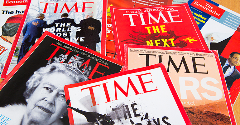
Which food and beverage brands made TIME’s Most Influential Companies list?
2 Oct 2024
Chickpea pasta, prebiotic sodas, food boxes, non-alcoholic beer, and a soil carbon marketplace are the specialties of the five food and beverage brands that earned a spot on TIME’s 2024 list.
Read more
New environmental food scoring standards emerge
30 Sep 2024
EIT Food and Foundation Earth collaborate to launch environmental food scoring for products entering the global supply chain.
Read more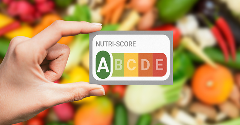
Danone removes NutriScore from products
20 Sep 2024
Following an algorithm update that gives some of its sweetened drinks a worse score, Danone has removed the front-of-pack label, NutriScore, from all of its products – putting profit before public health, say campaigners.
Read more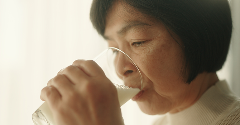
Nestlé develops a new fat reduction method for dairy ingredients
26 Aug 2024
A Brazil-based Nestlé research and development team has developed a way to reduce the fat in milk powder by as much as 60%, without impacting the key characteristics that consumers enjoy.
Read more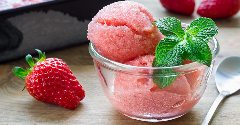
Better Juice expands its range to sorbets
16 Aug 2024
Food tech startup Better Juice has developed a technology to reduce the sugar content in fruit sorbets. The process retains the natural vitamins, minerals, and flavours of fruit, while offering manufacturers an easy-to-implement and scalable solution t...
Read more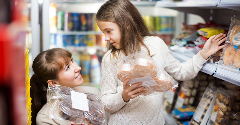
German study reveals high sugar, fat, and salt levels in children's foods
13 Aug 2024
The food industry is making slow progress in reducing the high levels of sugar, fat, and salt in German food and beverage products marketed to children, according to the Max Rubner Institute (MRI).
Read more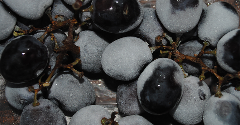
Swedish court overturns prohibition on winery’s use of imported frozen grapes
12 Aug 2024
Swedish company Drood Winery has successfully challenged the Swedish Food Agency’s decision to prohibit the production and sale of their product made from frozen grapes imported from Iran.
Read more
Paris Olympics: Food and beverage brands champion health, fun, and sustainability
5 Aug 2024
Food and beverage brands are aligning with the Paris Olympics 2024 Food Vision, which emphasises sustainability, local sourcing, and plant-based diets.
Read more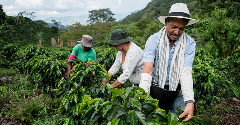
The coffee supply chain is failing farmers, says Solidaridad
30 Jul 2024
The coffee industry’s economic model means its profits do not reach farmers, despite there being enough value to be shared all along the supply chain, according to a new report by Solidaridad Network and IDH.
Read more